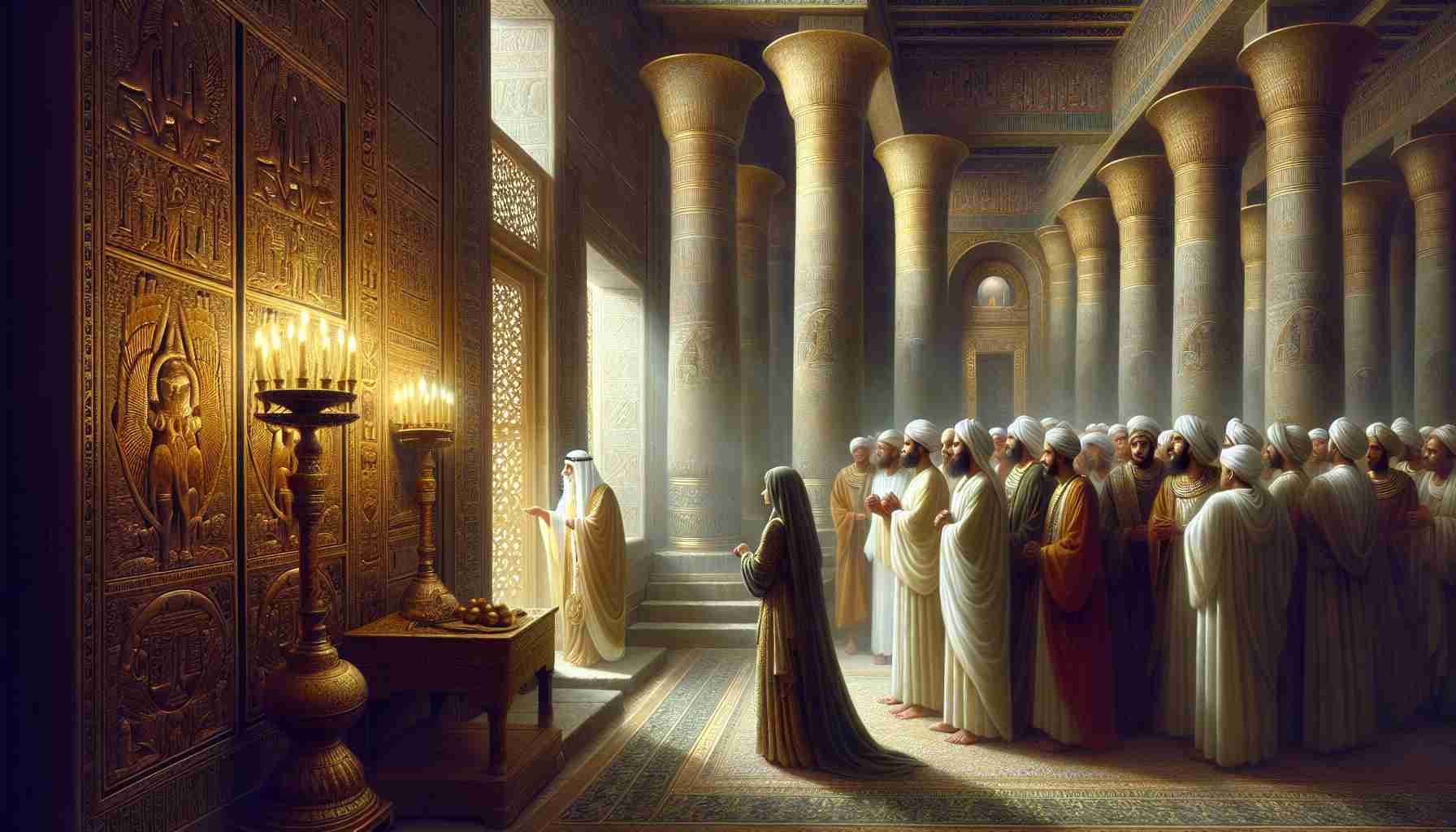

I was a scribe in Pharaoh’s court, trained to be invisible. I recorded grain counts and trade contracts, never drawing attention. No one noticed when I stood quietly behind the platform that day, my stylus trembling in my hand.
It began like any other audience with foreigners, until I recognized them—ten men from Canaan, dusty and sunburned, bowing low before the Vizier. I had seen portraits of Joseph, Jacob’s long-lost son, while cataloging the royal archives. They said the Vizier had been found in a pit—like a dead man come to rule. But what gripped me wasn’t just his image. It was the story whispered among the servants: that these men were his brothers, the ones who had sold him into slavery.
Joseph had tested them for weeks. I saw him weep behind closed doors. He hid his Hebrew accent well, but not his pain. I admired his strength, but a part of me feared him. How does a man forgive betrayal?
That day, everything changed.
Joseph stood slowly. His voice cracked like a man holding back a flood. “I am Joseph,” he said in their language. “Is my father still alive?”
I dropped my stylus.
The brothers froze in horror. One dropped to his knees. Another looked around for escape. Not even the guards moved. For a moment, the air in that great Egyptian hall seemed to disappear.
Joseph stepped forward. Not with anger. With tears.
“Do not be distressed,” he said gently, “do not be angry with yourselves for selling me here—it was God who sent me ahead of you to preserve life.”
I had never heard words like that before. Not in the language of Pharaoh or the prayers of palace priests. He didn't seek revenge. He didn’t command their punishment. He embraced them.
He hugged Benjamin first, the youngest. But then he wept over them all. His sobs echoed off the stone walls, filling that cold chamber with warmth I didn’t know I needed. Even the guards looked away, some blinking back tears.
I remembered my own brother then. We hadn’t spoken in years—not since he left for a job I thought should have been mine. I had carried bitterness like a stone in my chest. But watching Joseph release his pain, watching him choose love—I felt something inside me crack open.
Afterward, when Joseph ordered carts sent back to Canaan for his father Jacob, I slipped away from my post. That night, I wrote my brother a letter.
Maybe it wouldn’t fix everything. But it was a start.
Joseph’s tears didn’t just mend a family. They taught me something Pharaoh’s court never could: that when we forgive, we open the door for God’s plan to be revealed—and for hope to restore what hate nearly destroyed.
I was a scribe in Pharaoh’s court, trained to be invisible. I recorded grain counts and trade contracts, never drawing attention. No one noticed when I stood quietly behind the platform that day, my stylus trembling in my hand.
It began like any other audience with foreigners, until I recognized them—ten men from Canaan, dusty and sunburned, bowing low before the Vizier. I had seen portraits of Joseph, Jacob’s long-lost son, while cataloging the royal archives. They said the Vizier had been found in a pit—like a dead man come to rule. But what gripped me wasn’t just his image. It was the story whispered among the servants: that these men were his brothers, the ones who had sold him into slavery.
Joseph had tested them for weeks. I saw him weep behind closed doors. He hid his Hebrew accent well, but not his pain. I admired his strength, but a part of me feared him. How does a man forgive betrayal?
That day, everything changed.
Joseph stood slowly. His voice cracked like a man holding back a flood. “I am Joseph,” he said in their language. “Is my father still alive?”
I dropped my stylus.
The brothers froze in horror. One dropped to his knees. Another looked around for escape. Not even the guards moved. For a moment, the air in that great Egyptian hall seemed to disappear.
Joseph stepped forward. Not with anger. With tears.
“Do not be distressed,” he said gently, “do not be angry with yourselves for selling me here—it was God who sent me ahead of you to preserve life.”
I had never heard words like that before. Not in the language of Pharaoh or the prayers of palace priests. He didn't seek revenge. He didn’t command their punishment. He embraced them.
He hugged Benjamin first, the youngest. But then he wept over them all. His sobs echoed off the stone walls, filling that cold chamber with warmth I didn’t know I needed. Even the guards looked away, some blinking back tears.
I remembered my own brother then. We hadn’t spoken in years—not since he left for a job I thought should have been mine. I had carried bitterness like a stone in my chest. But watching Joseph release his pain, watching him choose love—I felt something inside me crack open.
Afterward, when Joseph ordered carts sent back to Canaan for his father Jacob, I slipped away from my post. That night, I wrote my brother a letter.
Maybe it wouldn’t fix everything. But it was a start.
Joseph’s tears didn’t just mend a family. They taught me something Pharaoh’s court never could: that when we forgive, we open the door for God’s plan to be revealed—and for hope to restore what hate nearly destroyed.